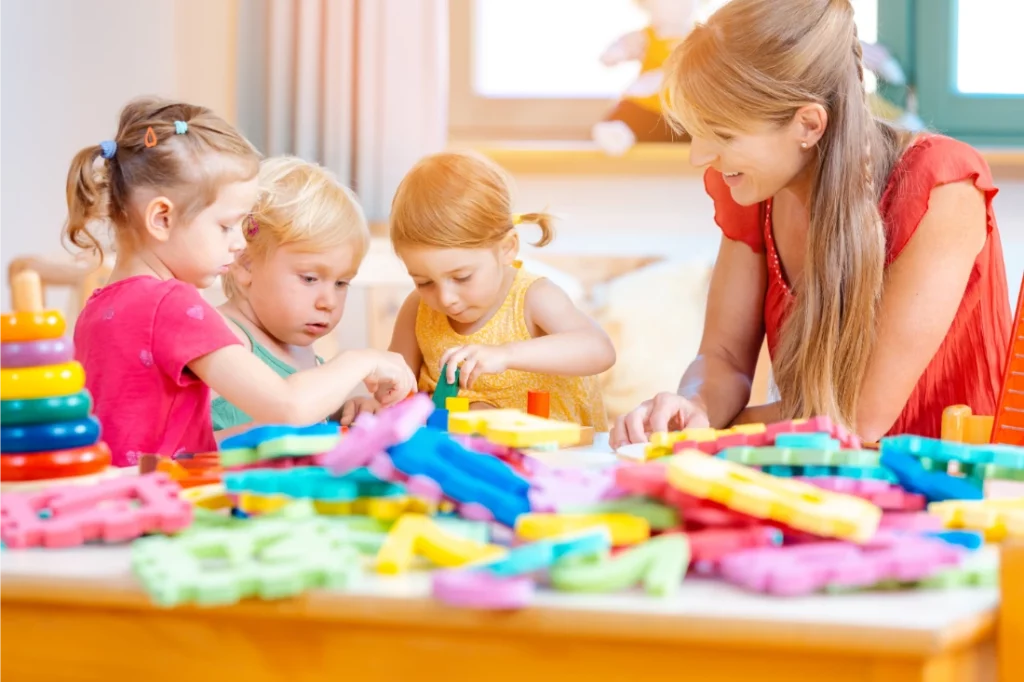
Service Overview
Effective Behavior Intervention
Behavior Intervention services at Symbiosis Clinics are designed to increase communication skills, social skills, self-help skills, play skills and motor skills as well as decrease problem behaviors and increase replacement behaviors.
Our Behavior Interventionists build on each child’s interests and strengths using natural opportunities to facilitate their learning.
During the 1:1 Behavioral intervention sessions, skills that are useful in everyday life are broken down into easy-to-learn steps, with positive reinforcement and goal-focused approach that meets the unique needs of each child. The 1:1 Behavior Intervention program helps the child function in more effectively in their natural environments.
Focus Areas
Skills We Help Develop
We focus on refining motor abilities to enhance physical coordination and agility, facilitating smoother movements and improved dexterity
Our interventions aim to boost cognitive functions, equipping individuals with enhanced problem-solving and decision-making capabilities for greater adaptability
Through targeted strategies, we work towards improving communication proficiency, empowering individuals to express themselves effectively and engage meaningfully with others
Our programs emphasize the development of social interaction skills, fostering meaningful connections and promoting positive relationships with peers and caregivers
We prioritize the mastery of essential daily living tasks and self-care routines, empowering individuals to achieve greater independence and autonomy in their daily lives
Curriculum and Schedule
Diagnoses We Address

Learning Disabilities
Autism Spectrum Disorder (ASD)
Developmental Coordination Disorders (DCD)
Attention Deficit Hyperactivity Disorder (ADHD)
Anxiety Disorders
Organisation, time management and emotional control
Self regulation skills
Self regulation skills
Executive function skills
Gross and fine motor skills
Handwriting difficulties
Sensory processing and modulation challenges
Focusing, attention and transitions
Learning Disabilities
Autism Spectrum Disorder (ASD)
Developmental Coordination Disorders (DCD)
Attention Deficit Hyperactivity Disorder (ADHD)
Anxiety Disorders
Organisation, time management and emotional control

Self regulation skills
Self regulation skills
Executive function skills
Gross and fine motor skills
Handwriting difficulties
Sensory processing and modulation challenges
Focusing, attention and transitions
How It Works
Our Efficient and Effective Approach
Individualized Plans
We craft personalized intervention plans tailored to each child’s unique needs and developmental goals, ensuring targeted support and progress
Structured Sessions
Our sessions are carefully structured to provide a conducive learning environment, with clear objectives and evidence-based strategies implemented for optimal results
Ongoing Monitoring
We continuously monitor progress and adjust interventions as needed, fostering flexibility and responsiveness to each child’s evolving needs and milestones
FAQ
Frequently Asked Questions
What is Behavior Intervention?
Behavior intervention involves the implementation of strategies and techniques to promote positive behavior change, reduce challenging behaviors, and teach new skills in individuals with behavioral concerns or developmental disabilities.
Who can benefit from Behavior Intervention services?
Individuals of all ages who exhibit challenging behaviors, such as aggression, self-injury, noncompliance, or social difficulties, can benefit from behavior intervention services, including children with autism spectrum disorder, developmental disabilities, or emotional and behavioral disorders.
What approaches are used in Behavior Intervention?
Behavior intervention utilizes evidence-based practices such as applied behavior analysis (ABA), functional behavior assessment (FBA), behavior modification techniques, reinforcement strategies, visual supports, and individualized behavior plans to address specific behavior goals and support skill development.
We Are Here for You
Book a consultation today, let’s create a customized plan for your child’s growth





